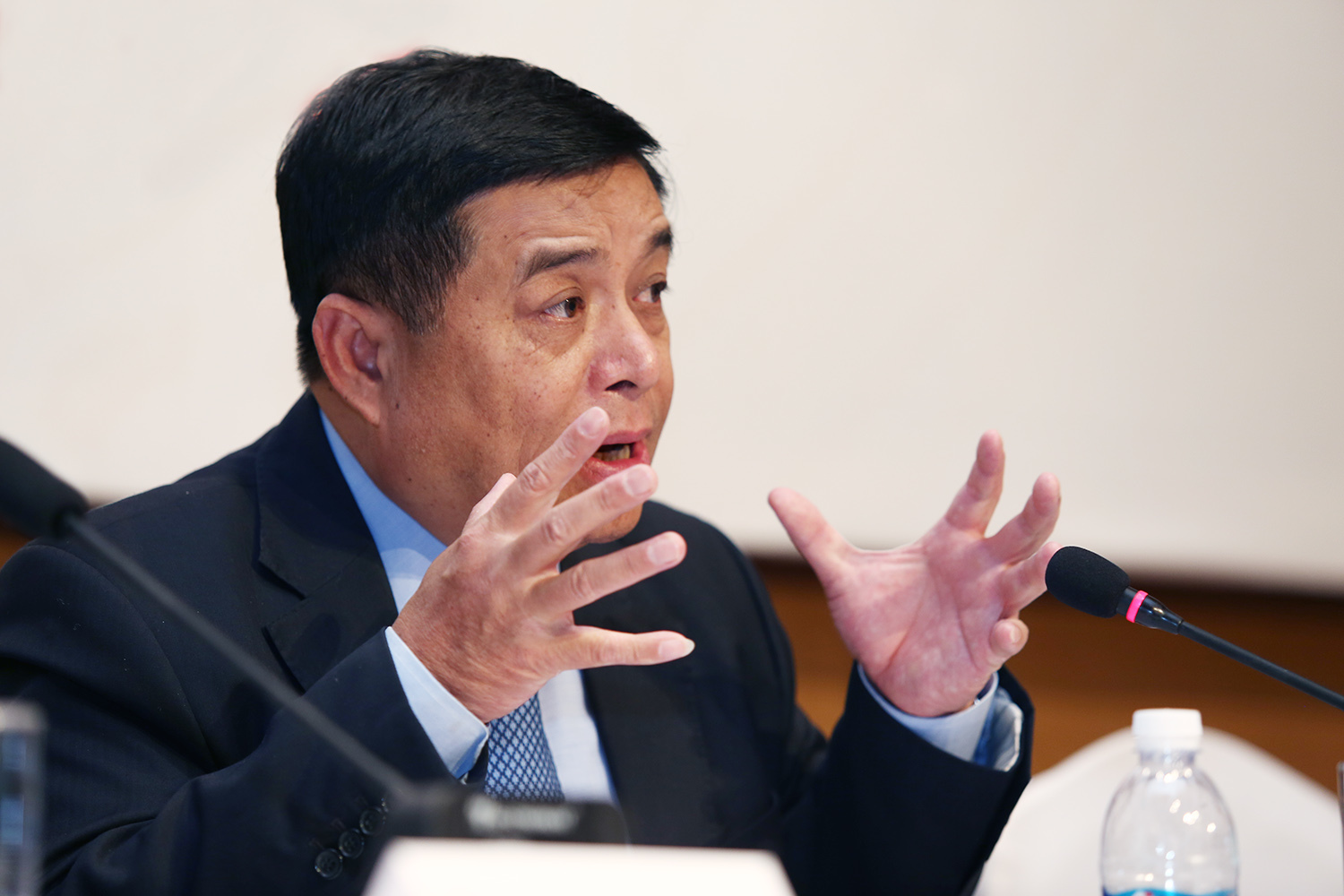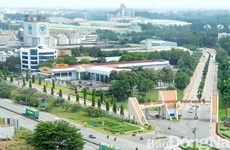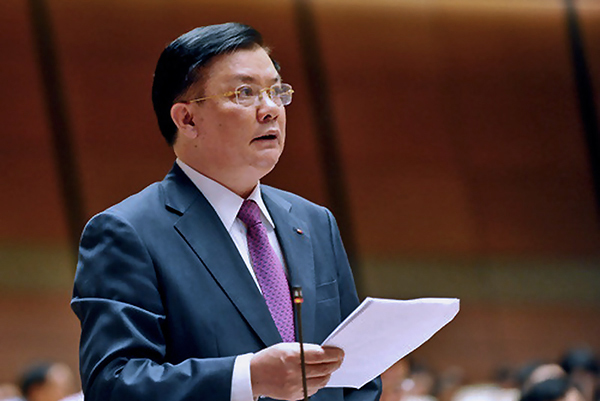 |
|
Minister of Planning and Investment Nguyen Chi Dung
|
Straight words
Minister of Planning and Investment Nguyen Chi Dung once summoned all officials of the ministry to make a 4-hour presentation on many development issues in the country. It was an unprecedented meeting and the minister wanted to pass on his concerns to the younger officials.
He said that the national economy has increased more than 40 times compared to 1990. The material and spiritual life of the people has markedly improved. Everyone should be proud of such achievements. However, Vietnam still belongs to the group of countries with low middle income, far behind the world average. In 2019, Vietnam ranked 136th out of 188 countries, about 40 years behind Korea, 14 years behind Thailand, six years behind the Philippines... Vietnam only ranked higher than Laos, Cambodia and Myanmar.
He said that Vietnam is chasing other countries, trying to close the development gap with them. But they are not standing there waiting for us. If we want to catch up with them, we have to run fast, and run steadily and continuously.
He raised a lot of questions: "Why? Why are we so slow?”“ Why did Japan, South Korea… which were so devastated and exhausted after the war, need only 40 years to reach the top 10 in the world? ”“Why does Vietnam have fundamental factors such as people, natural resources and geographical location but it is still underdeveloped?” “Why did we fail to industrialize and modernize by 2020?”
The questions and convincing data of Minister Dung, one of the people in charge of drafting the socio-economic report for the 13th National Party Congress, surprised many young officials that day.
Planning and investment is an integrated field, stretching throughout history since the founding of the country, going through the war to the time of national reunification, from the planning and centralizing bureaucracy to subsidy period to innovation and the market economy today. Mr. Dung's predecessors like Mr. Tran Xuan Gia, Mr. Vo Hong Phuc, and Mr. Bui Quang Vinh are all famous for their frankness and great contributions to promoting market factors, cultivating germs of development, which were held back under the planning period.
Like Mr. Dung, Minister Bui Quang Vinh used to give very frank warnings about lagging behind and the aspiration to revive the country.
At the 12th National Party Congress in January 2016, Mr. Vinh said: “Perhaps very few people know that, in the early 19th century (1820), Vietnam had a very respectable position in the region in terms of population and economic scale: bigger than the combined scale of the Philippines and Myanmar and 1.5 times more than Thailand. Vietnam's per capita income was then roughly the world average. Currently, Vietnam’s per capita income is only one-fifth of the world average, more than one-third of Thailand."
Mr. Vinh continued: “We have had 40 years living in peace, 30 years of reform. This time is equivalent to the time South Korea and Japan turned from poor agricultural countries to developed economies. At present, the need for national reform and development is more urgent than ever…”.
Market hallmarks
It is worth reviewing statements of leaders of the Planning and Investment sector on the 75th anniversary of the Ministry of Planning and Investment.
This is one of the country's oldest industries with famous leaders such as Pham Van Dong, Vo Van Kiet and Phan Van Khai who then became Prime Ministers.
During the war, the role of planning was very important to calculate every kilo of salt and rice for the battlefield in balance with society. In building the market economy in the Doi Moi (renovation) period, it was the once-conservative Planning sector that was the pioneer to promote reform and remove barriers to pave the way for people and businesses to develop.
Former Minister Tran Xuan Gia strongly defended the Enterprise Law 1999, clearing the flow from the private sector that had been suppressed for decades.
 |
The Enterprise Law has helped shape the local business class with many billionaires. The private economic sector has made a larger contribution to the GDP and contributed to growth and job retention, and not only during this difficult and divided year of the Covid-19 pandemic.
In an interview on the last day as the Minister of Planning and Investment in August 2011, Mr. Vo Hong Phuc affirmed that his biggest concern was the management of state-owned enterprises (SOEs), which accounted for the largest resources but was inefficient. Mr. Phuc forced SOEs and FDI enterprises to play on the same ground along with the issuance of the Enterprise Law 2005.
Mr. Phuc contributed to promoting market factors not only through laws, but also through statements in official forums. At the 11th National Party Congress in January 2011, Mr. Phuc raised concerns about a point in the political report "the socialism that our people build has a highly developed economy, based on modern production forces and the public regime of the main means of production”.
The "public regime on the main means of production", he said, differed from the view that was previously agreed upon in the previous Party Congresses and established at the 10th Party Congress as "socialism based on an advanced production relationship in line with the development of production forces”.
Analyzing reality in Vietnam and lessons learned from the former Soviet Union and Eastern European countries, Mr. Phuc said: “If we have public ownership of the main production materials, who would dare to invest in building a power plant? Who dares to invest in infrastructure when we are lacking infrastructure facilities?"
According to Mr. Phuc, promoting democracy, attracting maximum resources of the entire society, bringing into play the strengths and resources of all economic sectors, and arousing the collective strength of the entire nation are lessons that have been proven by reality.
That view was received at the Party Congress. The strength of the market is encouraged and the resources of the people are guaranteed to build the country.
The power of mechanisms and thinking
The Director of the Central Institute for Economic Management Nguyen Dinh Cung was once assigned to speak at a conference of the Ministry of Planning and Investment, which was attended by Prime Minister Nguyen Xuan Phuc and Deputy Prime Minister in charge of economics Vuong Dinh Hue.
At that time, some proposed to merge the Ministry of Finance and the Ministry of Planning and Investment, arguing that in a market economy, there is no need for a planning agency.
Mr. Cung outlined a series of successful lessons from East Asian countries to see the indispensable importance of the advisory body on reform and development such as Japan's MITI, the Economic Planning Committee of South Korea, Singapore's Economic Development Committee, and China’s National Development and Reform Commission.
He said: “I think that the proposal is not suited for the current level of development as well as the requirements for national reform and development in the next 10-15 years."
Mr. Cung's recommendations and the efforts of many others were acknowledged by the Party and Government.
For his part, Mr. Dung continued to promote market factors through promoting laws such as PPP, the amended Enterprise Law, Law on Public Investment, Law on Support of SMEs .. This promotes participation of the people and businesses in economic development.
Tu Giang - Lan Anh

Favourable investment climate brings in FDI capital
Dong Nai has been among the leading localities in Vietnam in attracting foreign investment over recent years, with local authorities continuing to innovate and create a favourable investment environment.

Pressure on the Finance Minister
As the holder of the keys of the national treasury, Finance Minister Dinh Tien Dung is facing great pressure.